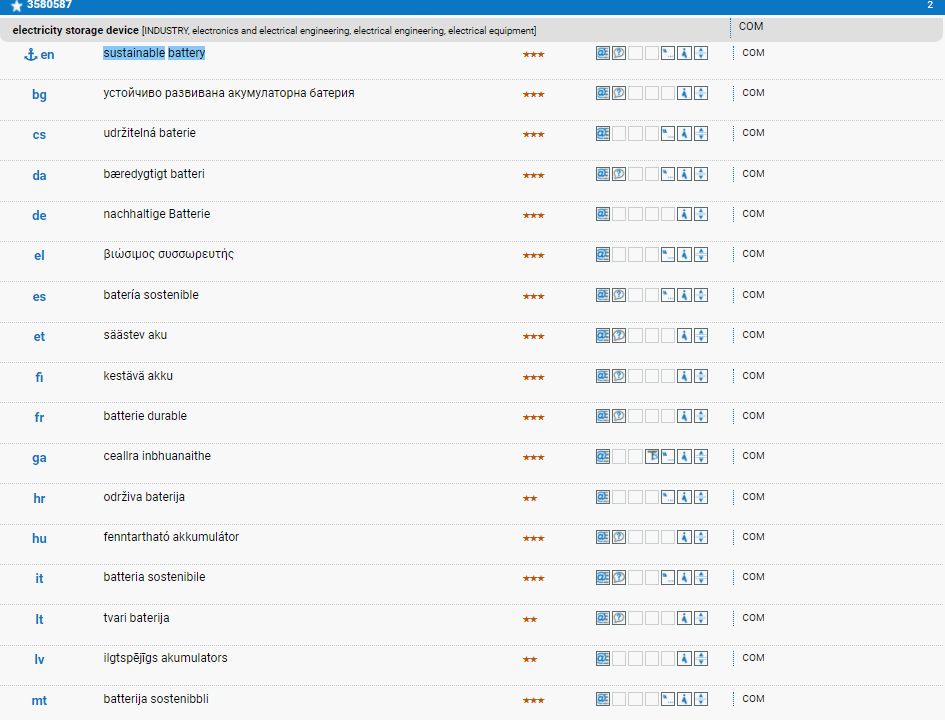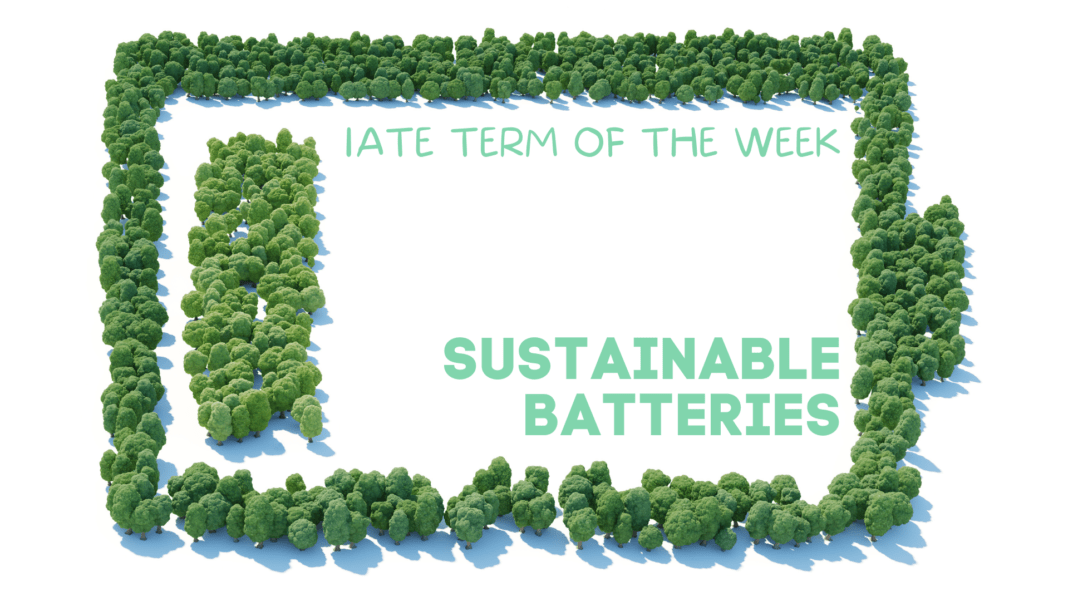The word sustainable is more used now than ever, but what are ‘sustainable batteries’? And why do we need them?


The word sustainable, in itself, means something that causes little or no damage to the environment and is able to be continued (or used) for a long period of time. When it comes down to batteries, the EU currently has an unsustainable market which has a high demand of raw materials. In order to produce a battery, there is a high environmental footprint in addition to the fact that most batteries are not reusable or appropriately discarded. The EU’s battery market currently consists of:
- Automotive batteries (used for vehicles, lightning or ignition powers);
- Batteries for light means of transportation (such as e-bikes, e-scooters);
- Industrial batteries (used for energy storage, electric vehicles);
- Portable batteries (sealed batteries that are usually used in cellphones, computers and other portable electronic objects).
With all the possible usages for the existing different batteries, the frequency in which they are used and then replaced, combined with the lack of possibilities of recycling, reusing and /or appropriately disposing them, created a need for batteries that do less damage to the environment.
But what does the use of sustainable batteries imply exactly?
The European Parliament is adopting policies so that batteries can be repurposed, remanufactured or recycled at the end of their life cycle. This means that from now on, all batteries will have a label so that their carbon footprint is more transparent and easily tracked. These rules ensure that batteries are collected after their usage instead of being inappropriately discarded, which decreases their negative impact on the environment. In other words, this makes them sustainable, since they can be reused and will be naturally less aggressive.
The EU is facing a transition moment which, with time, will prevent toxic substances to be released in the environment, decrease the dependence on fossil fuels and allow safe battery production, thanks to sustainable batteries. These new policies are an important step of the EU’s circular economy action plan and the EU’s industrial strategy.
References:
European Council. 2022. Towards a sustainable, circular, European battery value chain – Consilium. [ONLINE] Available at: https://www.consilium.europa.eu/en/infographics/battery-value-chain/. [Accessed 27 April 2022].
European Council. 2022. Sustainable batteries: member states ready to start negotiations with Parliament – Consilium. [ONLINE] Available at: https://www.consilium.europa.eu/en/press/press-releases/2022/03/17/sustainable-batteries-member-states-ready-to-start-negotiations-with-parliament/. [Accessed 27 April 2022].
European Investment Bank. 2022. A highway to sustainable batteries. [ONLINE] Available at: https://www.eib.org/en/press/news/northvolt-highway-to-sustainable-batteries. [Accessed 27 April 2022].
EUR-Lex – 32006L0066 – EN – EUR-Lex. 2022. EUR-Lex – 32006L0066 – EN – EUR-Lex. [ONLINE] Available at: https://eur-lex.europa.eu/legal-content/EN/TXT/?uri=celex%3A32006L0066. [Accessed 27 April 2022].
Nature. 2022. Charting a sustainable course for batteries | Nature Sustainability. [ONLINE] Available at: https://www.nature.com/articles/s41893-022-00876-x. [Accessed 27 April 2022].
New EU rules for more sustainable and ethical batteries | News | European Parliament. 2022. New EU rules for more sustainable and ethical batteries | News | European Parliament. [ONLINE] Available at: https://www.europarl.europa.eu/news/en/headlines/economy/20220228STO24218/new-eu-rules-for-more-sustainable-and-ethical-batteries. [Accessed 27 April 2022].
SUSTAINABLE | meaning in the Cambridge English Dictionary. 2022. SUSTAINABLE | meaning in the Cambridge English Dictionary. [ONLINE] Available at: https://dictionary.cambridge.org/dictionary/english/sustainable. [Accessed 27 April 2022].

Interview by Monyck de Sá Santos
Born in Rio de Janeiro, Brazil, in 1997. She completed her BA in Languages – Portuguese, English and Literatures at Veiga de Almeida University. She moved to Luxembourg in 2021 for her current Masters degree in Learning and Communication in Multilingual and Multicultural Contexts at the University of Luxembourg. Her working languages are Portuguese, English, French and Spanish. She is passionate about education, teaching, translation and communication. She was a Portuguese and English teacher for 6 years and worked as a translator for 1 year. She was a Study Visitor in TermCoord in the communication department in April 2022.

